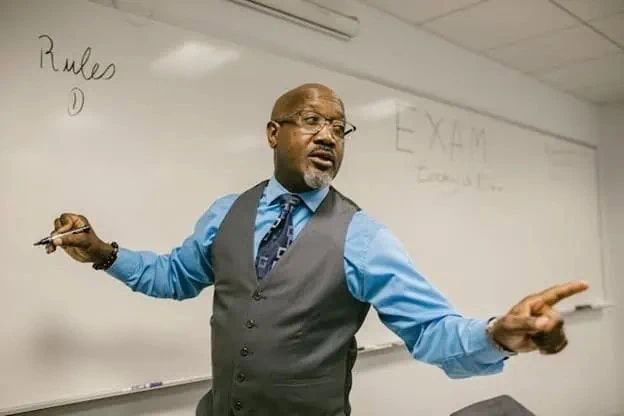Every fall, district HR teams scramble: principals paste “Science Teacher Needed” flyers in staff lounges, superintendents float signing bonuses, and long-term subs stretch lesson plans an extra week because the new hire still hasn’t cleared certification. That high demand for teachers and shortage isn’t a blip, it’s the new normal. More students, more retirements, bigger expectations, and not enough qualified educators to cover the corners.
For anyone who feels that pull to light up a classroom, the timing couldn’t be better. Alternative certification tracks are shorter, loan-forgiveness limits keep expanding, and many districts now pay stipends for bilingual skills, STEM credentials, or special-ed expertise. Teaching isn’t an easy gig, but the runway in 2025 is wide open and well lit.
Why the Demand Keeps Climbing
- More kids in seats. The Census Bureau says two million more K-12 students nationwide by 2028. Even modest class-size goals open up tens of thousands of new teaching slots.
- Retirements at a forty-year high. Baby-boomer educators are clocking out; roughly one in five public-school teachers hit retirement age this decade, creating vacancies faster than universities can backfill.
- Curriculum creep. Robotics clubs, coding electives, trauma-informed instruction, today’s lessons go well beyond chalk-and-talk. Schools need teachers who can deliver academic standards with tech fluency and socio-emotional support.
- Attrition pressure. Stress and wage gaps push many early-career teachers to exit within five years; every departure re-opens the job yet again.
- The diversity gap. Students of color are the majority in U.S. classrooms now, but the teaching force hasn’t caught up. Close to four out of every five teachers are still white. Districts see the value of representation and are actively hiring new teachers who mirror the communities they teach.
If teaching has ever crossed your mind, treat that as an invitation. Classrooms need fresh voices, principals are taking calls, and the timing is on your side.
Reasons Behind the Teacher Shortage
- Baby Boomers Clocking Out
Roughly one in five public-school teachers will hit retirement eligibility this decade. When seasoned veterans walk out with thirty years of know-how, it takes more than a fresh grad to plug the hole, they leave a mentoring gap, too. - Enrollment Keeps Climbing
The Census Bureau forecasts another two million K-12 students by 2028. Even if class-size policies stay flat, more desks mean more adults at the front of the room. - Curriculum Got Complicated
Robotics labs, media-literacy modules, trauma-informed practices, today’s lesson plans demand skills that didn’t exist when many teachers earned their credentials. Districts need educators who can code a micro-bit and calm a lunch-time meltdown. - Burnout Exits
Low starting pay, plus ever-rising paperwork push many early-career teachers to quit within five years. Every departure re-opens the position, and widens the experience gap. - Salary Squeeze
In high-cost metro areas, entry pay often trails local living-wage estimates by ten to fifteen percent. Some math majors spot a higher paycheck in data analysis and never look back. - The Representation Gap
Fact: Students of color are the majority in classrooms. Fact: Nearly eighty percent of their teachers are white. Representation in teachers isn’t keeping up. Districts are actively looking for bilingual educators, Native instructors, and Black STEM mentors who can model real possibility.
Taken together, these six forces create a conveyor belt of open jobs, from rural elementary schools hunting for generalists to urban districts dangling bonuses for calculus, chemistry, and special-ed specialists. For anyone willing to combine subject passion with a teaching credential, the door is propped wide open.
Beyond the Chalkboard. Where Education Can Take You
Ask five educators what their job looks like, and you’ll get five different answers. Classrooms obviously need someone at the front of the class. But schools run on way more positions than just teachers. If you enjoy pushing people to get their ‘light-bulb moments,’ but don’t see yourself in front of desks all day, there’s still a niche that can fit you.
Classroom Teacher (Pre-K to 12)
This remains the post districts advertise first. On Monday you might coax a kindergartner to write a letter ‘B’ without flipping it backward; on Tuesday you’re guiding eleventh-graders through the moment a quadratic finally makes sense and the whole row mutters “Oh, that’s why.” Openings stack highest in bilingual elementary rooms, middle-school math labs, high-school physics classes, and nearly every special-education setting.
Instructional Coach
Think of this as “teacher for teachers.” You analyze lesson plans, co-teach model classes, and help colleagues weave tech and data into their practice. Districts often promote strong classroom veterans into these roles within five to eight years.
Curriculum Designer
Behind every unit is a blueprint: learning standards, pacing guides, assessments. Designers build those maps. Some work in district offices; others join ed-tech firms creating national products. If you love structuring content and geeking out over scope-and-sequence charts, start here.
School Counselor
Schedules, college applications, mental-health triage, counselors juggle it all. Demand is rising fast as districts pursue lower student-to-counselor ratios. A master’s in school counseling plus state licensure opens the door.
Media & Technology Specialist
Part librarian, part IT whisperer. You teach digital literacy, manage the makerspace, and troubleshoot the 3-D printer before second period. Districts leaning into one-to-one device programs need these tech-savvy guides yesterday.
Administrator (Assistant Principal, Principal, Superintendent)
Leadership track: start as a teacher, earn an admin credential, and shift into building-wide strategy, budgets, discipline policy, community outreach. Yes, paperwork grows, but so does the influence to shape an entire school culture.
Alternative Ed & Adult Literacy
Night-school GED classes, prison education, ESL programs for newcomers, teaching doesn’t always happen in a traditional classroom. Agencies and nonprofits hire educators who thrive on flexible schedules and diverse learner profiles.
Corporate & Nonprofit Training
Lesson-design chops translate smoothly into employee onboarding, customer-success training, or instructional-design gigs at software companies. If you want daytime teaching energy without grading stacks of essays, corporate L&D is a strong pivot.
No matter the lane, the common thread is the skill set: clear communication, patience, content expertise, and the knack for turning abstract goals into concrete learning moments. Once you have that toolkit, you can move between roles, or stack them, throughout your career.
Fast-Track Pathways Into the Classroom
Not every future teacher starts with a four-year education degree. Districts fighting vacancies have opened side doors, and some are quicker and cheaper than the traditional route.
Alternative Certification Programs
Most states now run a one- to two-year track for degree-holders in other fields. You take evening pedagogy classes while working under a mentor teacher during the day. Texas, Florida, and Arizona place thousands through this pipeline every year, often in math, science, and bilingual slots.
Residency Models
Think medical residency, but for schools. You spend a full academic year co-teaching with a veteran, pick up graduate credits on Fridays, and slide into a salaried role the following fall. Programs in Boston, Denver, and Memphis report first-year retention rates above 85%, far better than the national average.
Grow-Your-Own Scholarships
Paraprofessionals, tutors, and community liaisons already in the building can earn a bachelor’s with tuition covered by the district in exchange for a three- to five-year teaching commitment. Chicago’s “Teacher Residency” and rural Kentucky’s “Go Teach KY” are two stand-outs.
Online MAT Degrees
If you need the full credential but can’t quit your day job, accredited universities now offer Master of Arts in Teaching programs you can finish in 12-18 months. Student-teaching happens at partner schools near you; coursework lives on Zoom after dinner.
What the Pay Curve Looks Like
- Day one: entry salaries hover around $42-55 K, with special-ed and STEM slots trending higher.
- Year five: add a master’s bump, a district step increase, and potential high-needs stipends, total comp often lands in the mid-60s.
- Extras: bilingual bonuses ($2-5 K), signing incentives ($2-10 K), and up to $17 K in federal loan forgiveness for math, science, and special-ed teachers.
If you already hold a non-education bachelor’s, or you’re a school aide dreaming of your own class, you could be teaching full-time by next August. The amount of paperwork isn’t small, but neither is the need.
Recruitment Tactics to Fill Classrooms
With vacancies still outpacing applicants, districts have shifted from wish-lists to full-tilt sales pitches. If you’re scanning job boards, expect to see some of these sweeteners:
Signing Bonuses and Housing Help
Rural Colorado offers $6,000 up-front for secondary math teachers; San Francisco Unified partners with local nonprofits to provide below-market rents for first-year hires. In high-cost zip codes, a housing stipend can mean the difference between taking the job and turning it down.
Student-Loan Pay-Downs
Beyond federal Public Service Loan Forgiveness, some districts toss in their own contributions, $200 a month toward qualified balances, or lump-sum payouts after three years of service. A small California coastal district shaved $15,000 off a bilingual teacher’s debt by year four.
Grow-Local Pipelines
Many superintendents know long-term retention improves when hires already call the community home. “Para-to-Pro” scholarships, high-school Teacher Cadet clubs, and dual-credit education courses give locals a funded runway into the classroom.
Buddy-Mentor Programs
First-year teachers matched with veteran mentors are 20 percent more likely to stay past year three, according to a 2024 Learning Policy Institute brief. Effective programs carve out weekly release periods so mentors can observe, co-plan, and debrief, support that beats a once-a-month check-in.
International Recruiting
Districts from Texas to North Carolina fly in credentialed educators from the Philippines, Jamaica, and South Africa on J-1 visas. Cultural-exchange hires often fill hard-to-staff special-ed and STEM roles. Good districts pair arrivals with settlement coaches; bad ones leave them to sink or swim. Ask about supports before signing.
Micro-Credential Pay Bumps
Earn a Google Certified Educator badge, Reading Recovery endorsement, or AP Computer Science certification and snag an extra $1,000-$3,000 per year. Districts use micro-credentials to plug skill gaps fast and reward teachers who upskill.
If you spot two or more of these perks in a posting, the district is competing hard, and may be open to negotiation. Ask what else is on the table: relocation funds, extra prep periods, or tuition reimbursement for a master’s can turn a good offer into a stay-for-a-decade package.
Keeping Great Teachers Once You’ve Got Them
Recruitment perks fill vacancies; smart retention keeps them from reopening every June. Districts that stem turnover don’t rely on pizza parties, they redesign workloads, career ladders, and support systems so teachers can see a future that feels sustainable.
Induction-Year Coaching That’s Built Into the Schedule
States like Delaware and Arkansas fund full-release mentors: seasoned teachers with lighter rosters who spend four days a week co-planning, observing, and modeling lessons for rookies. A 2025 RAND study found districts using this model cut first-year attrition by nearly a third.
Class-Size Experiments That Stick
Tennessee’s “25:1 pilot” gave K-3 classrooms an aide when rosters exceeded 25 students. Reading scores rose three points, but just as important, teacher exit rates dipped 12 percent, the workload felt human again.
Micro-Credential Step Raises
Veteran educators in Fresno Unified earn a $2,500 bump for each high-need endorsement, bilingual authorization, Algebra I intervention, trauma-informed practices, capped at three new badges. The district keeps expertise in-house, and teachers see a clear payoff for upskilling.
Dedicated Planning Days
North Carolina’s Charlotte-Mecklenburg dropped one instructional day per quarter and replaced it with unit design, data dives, and wellness workshops. Teachers report lower Sunday-night anxiety and higher lesson freshness; the district calls it “paid oxygen.”
Mental-Health Coverage That Goes Beyond an EAP Brochure
Denver Public Schools added ten no-copay therapy sessions per year and launched on-site mindfulness rooms. Within two years, mid-career departures slowed, and survey scores on “I feel supported” jumped 15 points.
Teacher Leadership Roles In the Classroom
Instead of nudging great teachers into admin jobs they don’t want, Chicago’s Opportunity Schools initiative pays an extra $7,000 for “Model Teacher” slots. These educators keep a half-load of classes and spend the rest of the week coaching peers, writing curriculum, or piloting new tech.
Salary matters, but autonomy, manageable rosters, and visible growth paths matter just as much. Districts that invest here save a fortune on constant rehiring, and students keep the seasoned pros they deserve.
Overlooked Upsides for New Teachers
The starting salary headline doesn’t tell the whole story. Dig a little deeper and you’ll find perks and pathways that rarely make the job flyer but can tilt the long-term math in your favor.
Summer Side-Gigs That Align With Your Skills
Teachers who run four-week STEM camps or online AP prep sessions can pocket $3,000-$6,000 before August. Because you already have the curriculum chops, these gigs pay better than random seasonal work and still leave time for a real vacation.
Clear Promotion Ladders Inside the Classroom
Many districts now offer “lead teacher” or “instructional specialist” roles that bump pay $5-$10 K without forcing you into administration. You keep a partial roster, mentor two or three colleagues, and shape campus-wide strategies.
Paid Sabbaticals for Graduate Study
Boston Public Schools covers 75% of tuition, and full salary, for year-long master’s programs in high-need areas like bilingual education or special-ed diagnostics. Finish the degree, return for three years, and you walk away debt-free and on a higher pay lane.
Portability of the Credential
Unlike a niche corporate role, a state teaching license plus two years of experience travels well. Interstate compacts now let teachers move credentials across more than half the country with minimal paperwork, opening doors to new cities without starting from scratch.
Hybrid Roles in EdTech and Curriculum Design
Districts partner with ed-tech companies for pilot programs; classroom teachers often moonlight as product testers or curriculum writers at $40–$60 an hour. It’s a low-risk way to explore corporate L&D while still collecting district benefits.
Loan Forgiveness That Actually Hits Principal
Teach five consecutive years in a Title I school and the federal Teacher Loan Forgiveness program can wipe $17,500 off qualified loans, double that if you also qualify for PSLF down the road.
Add these hidden upsides to the base salary, and the profession’s value proposition looks very different. For those willing to plan a few moves ahead, teaching offers both immediate impact and long-term financial oxygen.
Ready to Take the First Step?
If the data, perks, and pathways have you thinking, “Maybe the classroom is where I’m meant to be,” tap into the resources that can turn that curiosity into a job offer:
- State Certification Portals: Every Department of Education posts step-by-step license guides and lists of approved alt-cert programs. Start with your zip code, then check reciprocity rules if a move might be in the cards.
- Federal Loan Forgiveness & Grant Pages: Bookmark studentaid.gov for TEACH Grants, Teacher Loan Forgiveness, and the latest PSLF updates; the requirements shift almost every budget cycle.
- District Job Boards & Hiring Fairs: Hard-to-staff systems in Arizona, Florida, North Carolina, and California now run rolling virtual fairs—you can interview from your kitchen table.
- Professional Associations: Groups like the National Education Association (NEA) and Association of Latino Administrators and Superintendents (ALAS) host free webinars on résumé prep, demo lessons, and contract negotiation.
- Diversity Employment’s Education Listings: Browse openings from districts committed to inclusive hiring and mentorship. Upload a résumé once; update it as you rack up credentials.
Remember, demand isn’t a temporary spike, it’s a long-term trend. Classrooms need skilled, motivated educators, and principals are listening now. Line up your prerequisites, reach out to programs that fit your timeline, and step into a career where every day writes a line of someone else’s success story, yours included.
FAQs
Do I need an education degree to start teaching?
Not always. Forty-eight states run alternative-certification tracks for college grads in other fields. Most combine evening coursework with mentored classroom hours and issue a provisional license within 12 months.
How long does full certification take?
Traditional route: four-year bachelor’s + semester of student teaching. Alt-cert: 1-2 years while you work. Residency models split the difference, one intensive year alongside a veteran teacher, then straight into a salaried role.
What subjects are hottest right now?
Special education, bilingual elementary, middle-school math, high-school physics, and any Career & Technical Education slot tied to coding, cybersecurity, or advanced manufacturing.
Can I teach while finishing my degree?
Many districts hire “teacher associates” or long-term subs who are actively enrolled in certification coursework. Pay is lower than a full license but higher than a standard paraprofessional post.
Will my loans really be forgiven?
Yes, if you follow the fine print. Five consecutive years in a qualifying low-income school can wipe up to $17,500; add ten total years of public-service payments and PSLF can zero out the rest.
Last Thought
The high demand for teachers is a call to action. More than ever, EEO employment schools seek passionate individuals ready to shape the future. The teacher shortage is an open door. Whether you thrive on lesson planning, mentoring peers, or designing the next VR-ready curriculum, classrooms need what you got. Pick your pathway, lock in the credentials, and step into a career where the ROI is measured in futures changed as much as dollars earned.




